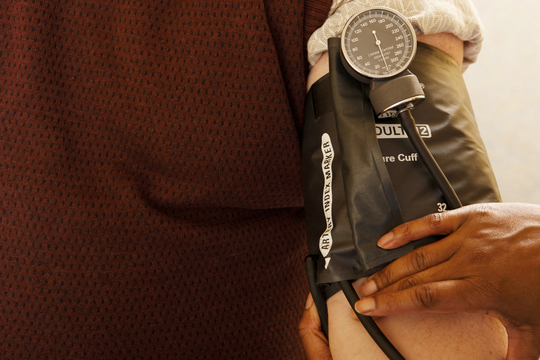Worldwide, there are over 300 million people living with viral hepatitis, of which an estimated 290 million have hepatitis B and C without knowing. Both viral hepatitis B and C are root causes of liver cancer, leading to 1.34 million deaths per year. Every year, the world comes together to take action and raise awareness of the global burden of viral hepatitis and to influence real change. This year’s observance marked the beginning of “Find the Missing Millions,” a three-year global awareness and advocacy campaign aimed at tackling the main barriers to diagnosis by putting civil society organizations and the affected community at the heart of the solution. The campaign will contribute towards progressing to the World Health Organization’s (WHO) elimination target of a 30% diagnosis rate by 2020.
In an effort to improve care and diagnosis around hepatitis C, Kaiser Permanente Mid-Atlantic Permanente Research Institute (MAPRI) led a study on HCV Screening and Linkage to Care. MAPRI reviewed records of over 600,000 members over 11 years before and after the US Preventive Services Taskforce’s 2013 screening recommendation change, which urges hepatitis C screening once for every adult born between 1945 and 1965 and for persons at risk regardless of age. The results showed that Kaiser Permanente had a higher screening, confirmation and linkage to care rate compared to other health systems.
Kaiser Permanente continues to close the gap in diagnosis and care for patients with hepatitis C. In an effort to improve care and diagnosis, MAPRI and Mid-Atlantic Permanente Medical Group have implemented a hepatitis C screening protocol where physicians are automatically alerted if a patient born between 1945 and 1965 is eligible for hepatitis C screening. In the Mid-Atlantic States, this alert is supported by a multi-step pathway that ensures patients complete all screening and are triaged to care. This involves implementing hepatic transient elastography (fibroscan), a non-invasive tool that provides a measure of fibrosis (liver stiffness). Screening, confirmation and linkage to care is monitored and supported by a hepatitis C coordinator, and progress is tracked based on the number of patients screened, how many complete each step of the pathway and are treated. As a result of this screening program, HCV testing numbers have significantly increased in KP Mid-Atlantic States.
To learn more about how Kaiser Permanente is leading the way in improving hepatitis C detection please visit here.
The Kaiser Permanente Center for Total Health hosts internal and external educational events. All events – including annual banquets, quarterly meetings, trainings, interviews – feature healthy catering options and can be customized to incorporate the interactive exhibits that make the Center for Total health experience both fun and informative for attendees. If your organization is interested in hosting an event, please send us an event request via our website. We look forward to hearing from you!




